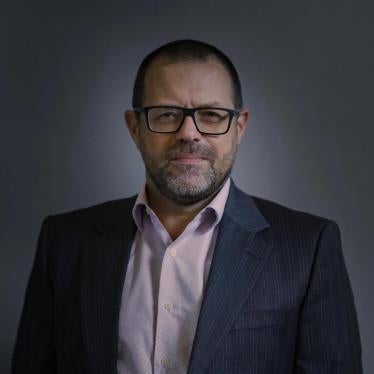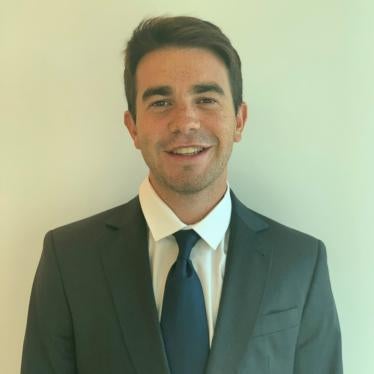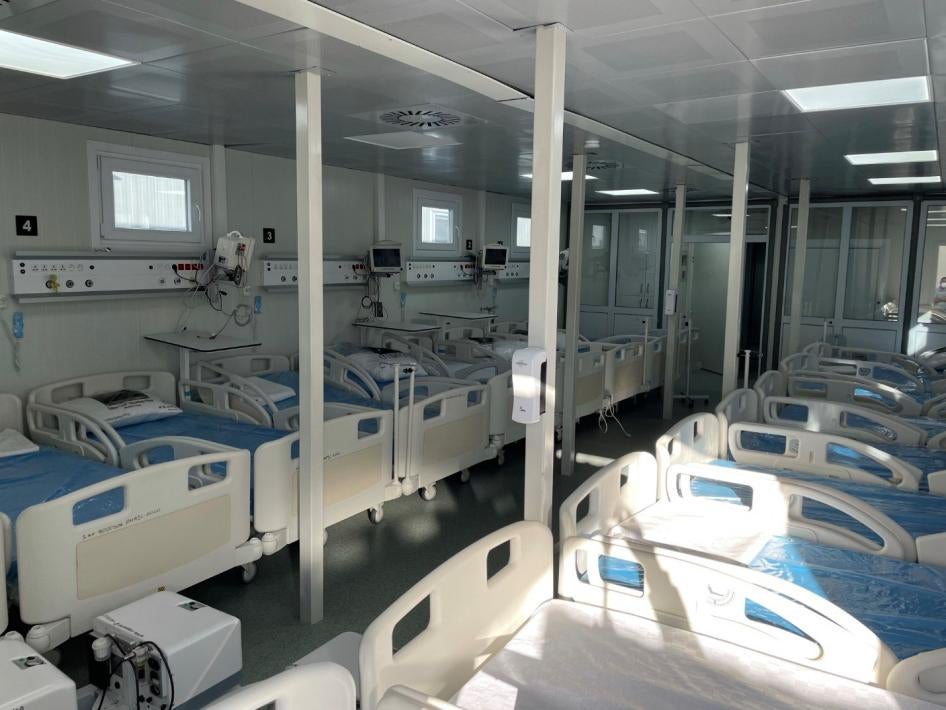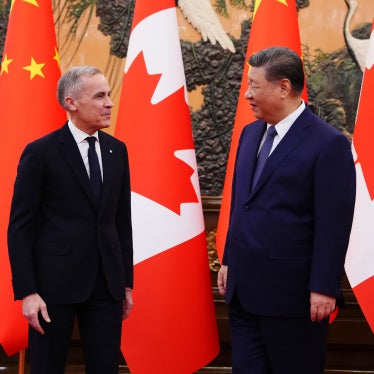Hondurans know well the human toll of corruption. In 2022, we visited a multimillion-dollar mobile hospital intended to provide vitally needed capacity to treat Covid-19. Beds were crowded together, and the units had no ventilation. The containers that made up the hospital seemed designed to spread the virus instead of stopping it, doctors told us.
The mobile hospital was one of seven in Honduras whose acquisition had been marred by corruption. In one of the poorest countries of the hemisphere, prosecutors contend that millions of US dollars aimed at fighting poverty in rural areas and diseases such as dengue have been embezzled over the past decade.
Systemic corruption deprives the government of funding for health, education, clean water, housing, and other rights. It dangerously undermines essential government functions and the rule of law. The corrosive effects are factors in the decision by millions of Hondurans to take the perilous trip north in search of a new life.
Honduras has a chance to start breaking those dynamics through the creation of an international anticorruption commission. An earlier attempt, created in 2016 in response to pressure from the Honduran public, was in a way a victim of its own success. The Mission to Support the Fight Against Corruption, known by its Spanish acronym, MACCIH, and backed by the Organization of American States, the team opened investigations that included powerful interests. After a backlash from Congress, then-President Juan Orlando Hernández shut it down in 2020.
While running for president, Xiomara Castro promised to recreate an international anti-corruption commission. Two years into her government, progress has been excruciatingly slow.
In December 2022, the government signed a memorandum with the United Nations secretary general to create the commission, with an aim of investigating high-profile cases, proposing legislative and policy changes, and training Honduran personnel to strengthen the fight against corruption. The memorandum expired on December 15 and has just been renewed.
The Castro administration got as far as presenting the UN, in September, with its proposal for the commission’s mandate and functions. But the government has yet to name a team to negotiate those details with the UN. The government also still needs to draft a resolution for the UN General Assembly to authorize the secretary general to move forward with the establishment of the commission.
Honduras and the UN should take into account not only the earlier experience of MACCIH, but also the UN-backed international commission that operated in Guatemala between 2007 and 2019, known as CICIG. Its investigations exposed more than 120 corruption schemes in all three branches of government and prompted the resignation and arrest of the country’s then-president and vice-president in 2015.
One of the lessons from Guatemala is that, following a backlash, the authorities opened spurious prosecutions of its national members. It is important to provide safeguards against similar reprisals for the Honduran commission.
Another key lesson from Guatemala’s experience is that the proposal to create the commission needs to enable it to prioritize the most pernicious, detrimental corruption cases.
Honduras’ earlier effort uncovered serious evidence of corruption, but its cases were delayed in the courts and few resulted in convictions. A lesson from MACCIH’s experience is that an international commission does not operate in the void. No matter how committed, diligent, and honest its members, they are doomed to fail if the rest of the justice system is crumbling or dominated by political interests.
Earlier this year, the Castro government worked with Congress to revoke certain laws that had hindered the fight against corruption. But obstacles remain, including a law that, in sweeping language, bars any sanction against legislators for actions taken “in the exercise of their duties”.
In some ways, prospects for fighting corruption have worsened under the Castro administration.
In June, Gabriela Castellanos, director of the main Honduran organization on corruption—the Anticorruption National Council—received threats after publishing a report on nepotism in the government and left the country. Castellanos returned after a month, committing herself to fight corruption despite security risks.
A government-supported amnesty passed by Congress, intended for people subjected to political persecution, has been used to dismiss corruption cases against two dozen officials who served during the administration of her husband, President Manuel Zelaya.
New members of the Supreme Court were drawn from a list made by a commission that evaluated their merits—a positive step. But Congress divided up the positions, allowing the political parties to choose justices they hoped would be partial to their causes. Political parties are attempting the same in choosing a new attorney general and deputy attorney general, and the process has mired Congress in disputes.
Legislators failed to name a new attorney general by September, when the term ended. A congressional commission packed with pro-administration legislators named an “interim” attorney general in November, a move that some legal experts condemned as subordinating the Attorney General’s Office to the governing party.
Such developments are a bad omen. To have long-term impact, any commission will need to promote justice system reform, granting it greater independence from political maneuvering.
The government has provided the public with scant information about its steps to create the commission. It has not entered into dialogue with civil society about what the commission should do or how it should operate. That is a mistake.
The authorities should treat the fight against corruption not as a partisan project but as a collective effort to improve the lives of all Honduras. It should discuss the process with as wide a range of actors as possible.
What won’t work, if Honduras is to tackle corruption, is business as usual: Obscure, behind-the-scenes negotiations to twist the justice system to reward one’s allies and investigate and punish one’s enemies.
In a Central America hobbled by corruption, President Castro has an opportunity to be remembered as a leader who took a crucial step in the fight against corruption. She needs to move quickly to create an international anticorruption commission—and to promote the legislative and policy changes necessary for its success. But, approaching the halfway point of her term, time is running out.











